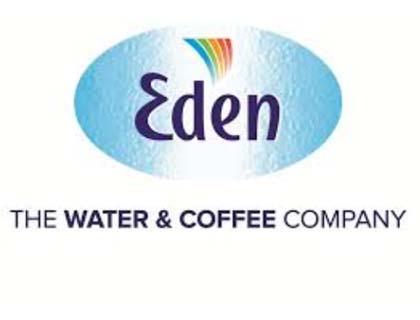0800 011 4531
Call FREE: Mon-Thu: 08:30-17:00 Friday: 08:30-16:00
The term “carbon footprint” has been a buzzword for quite a few years now. It is significant enough of a topic to merit thousands of yearly conferences all around the world; where scientists, activists and concerned parties come together to discuss the impact of our carbon footprint on the world and practical ways we as communities and individuals can aim to reduce it. It is vital that drinks and water companies like Eden Springs understand their carbon outputs, seek to reduce its impact, and look to affect a wider change in the businesses and people serviced. 
Over the last decade companies have been particularly concerned with organisational and product carbon footprints and every year hundreds of thousands of companies carry out carbon footprint assessments to determine their total greenhouse gas emissions. Eden Springs, as the leading workplace beverage supplier in the UK, have been actively assessing organisational and product carbon footprint since 2007 in order to better understand areas for improvement. Through this the majority of our carbon emissions are sourced back to electricity consumption, transport and material production. Reducing carbon emissions through these sources is not something that happens overnight but in fact involves a long term overhaul of the business operations and processes. This has ranged from optimisation of delivery routes (to conserve fuel) to strict product selection for efficiency, and highlights the opportunities available in every areas of a business. Immediate changes were implemented by opting to support a number of carbon offset projects in partnership with The CarbonNeutral Company in order to support organisational carbon footprint reduction. 
One thing we sought out to do very quickly was to establish the carbon emissions produced from a single glass of Eden Springs water, including the production of materials, transport and resources used to produce that glass of water. Once that had been established we wanted to be able to compare this with other beverages and products commonly used by consumers in the UK. For example, a 20cl glass of Eden water has 0,03 kCO2 whereas a 20cl cup of cappuccino has 0,24 kCO2; meaning that a glass of Eden water has much less of an impact on the environment than a cup of cappuccino. A vital step in becoming not just a carbon neutral but a ‘carbon considerate’ company is achieved through informing and educating you, the customer base, about the impacts of your actions and decisions, and helping to impact a wider change in habits outside of the direct company reach. A product’s carbon footprint is evidently not just important to the company, but also to the consumer and their intention to purchase. The Carbon Trust identified in a survey that 67% of UK consumers are more likely to buy a product with a low carbon footprint and 44% of consumers would switch to a lower carbon product even if the brand wasn’t their first choice.
Workplaces that consider themselves ‘carbon footprint conscious’ can do more to reduce personal and business carbon footprints aside from considering choices of water and beverages:
The UK aims to reduce carbon dioxide emissions by 80 per cent below 1990 levels by 2050, which means a joint effort from consumers, individuals and businesses alike. According to new statistics emission levels have been slowly decreasing since 2007, which means that whatever we’re doing could be having an effect. Any company like Eden Springs that is involved in and can influence workplaces across the country has an important part to play in affecting further change. So the next time you reach for drink you could consider who’s supplying it, as choosing your suppliers carefully does make a difference.

